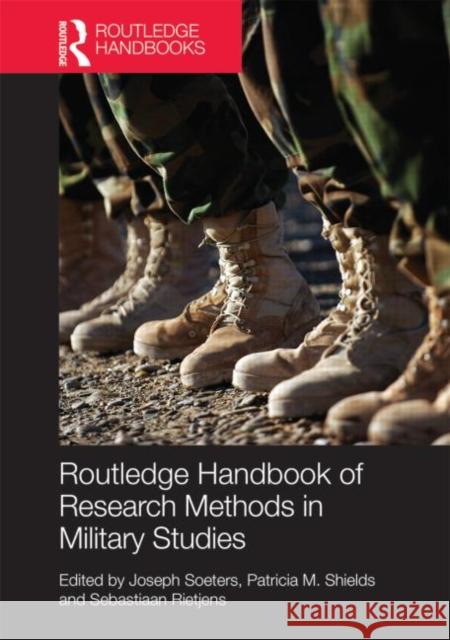Routledge Handbook of Research Methods in Military Studies » książka
Routledge Handbook of Research Methods in Military Studies
ISBN-13: 9780415635332 / Angielski / Twarda / 2014 / 336 str.
Routledge Handbook of Research Methods in Military Studies
ISBN-13: 9780415635332 / Angielski / Twarda / 2014 / 336 str.
(netto: 1135,82 VAT: 5%)
Najniższa cena z 30 dni: 1108,22
ok. 16-18 dni roboczych.
Darmowa dostawa!
This volume offers an overview of the methodologies of research in the field of military studies. The military is not just like any organization or profession. It is an organization that is heavily influenced by politics, which dispatches its personnel to far-flung places all over the world, sending them into situations where their lives may be at stake, and is an organization whose operations are often conducted in an atmosphere of secrecy. Studying the military is valuable because it uses collective resources such as the tax payers' money and hires employees that could have earned their salaries elsewhere in the economy, under less threatening circumstances. Additionally, the use of violence, the military's core business, is probably one of the most unpredictable and impactful forces in social dynamics. For all these reasons, voters have every right to know what is going on in that organization and its actions. It is difficult because it is a world of its own, an island within society-at-large. Getting access to it, particularly if one is not an regular inhabitant of that island, usually is no easy game to play.On the other hand, if one is a regular inhabitant, it may not be easy to do reseach either, because the organization will not always be interested in seeing the findings published, or seeing them published only on its own conditions in terms of timing and presentation. Taken all together, one can observe a societal and political push to know and an organizational tendency, however slight, to hide. Given this possible tension, the methodology of studying the military knows a number of idiosyncrasies, relating to its difficult accessibility and its very specific work. Therefore, there is ample reason to devote a volume to the methodologies of studying the military and, its main goal, conflict resolution. This handbook will be of much interest to students of military studies, civil-military relations, military sociology, political science and research methods in general.











